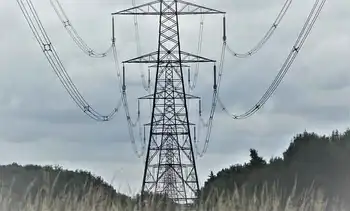German renewables law under scrutiny
By United Press International
Arc Flash Training CSA Z462 - Electrical Safety Essentials
Our customized live online or in‑person group training can be delivered to your staff at your location.

- Live Online
- 6 hours Instructor-led
- Group Training Available
Germany's famous EEG law has "failed to harness the market incentives needed to ensure a viable and cost-effective introduction of renewable energies into the country's energy portfolio," says the study published by RWI, an Essen-based economic think tank. "To the contrary: The government's support mechanisms have in many respects subverted these incentives, resulting in massive expenditures that show little long-term promise for stimulating the economy, protecting the environment, or increasing energy security."
Thanks to a lucrative feed-in tariff, Germany has the world's second-largest wind power market and tops the globe when it comes to installed solar energy capacity.
The study nevertheless singles out solar power for what it says is government support gone wrong: Berlin subsidizes a worker in the photovoltaic industry with up to $240,000 and pays $0.59 per kwH of solar power - roughly eight times the wholesale electricity price. PV modules installed between 2000 and 2010 will cost Berlin $73.2 billion, the RWI study says.
The study says this ambitious government spending scheme hasn't translated into enough ecological success: "The amount of electricity produced through solar photovoltaics was a negligible 0.6 percent despite being the most subsidized renewable energy," the study says.
Customers, the study continues, bear the cost of renewable energy promotion.
"In 2008, the price mark-up due to the subsidization of green electricity was about 2.2 cents, meaning the subsidy accounts for about 7.5 percent of average household electricity prices."
The German Environment Ministry has already issued a harsh counter-statement to the study, which contains "no new arguments," Berlin claims.
Renewable energy sources promoted by the EEG in 2008 alone saved 53 million tons of CO2 emissions, the ministry said. It also said that several German companies are among the best performers in the global wind and PV markets.
Claudia Kemfert, a leading German energy expert, also criticized the study's black-white approach.
"Nuclear energy was subsidized with $60 billion, German lignite with nearly $200 billion," she told German newspaper taz. "Energy supply is important, and one should support new technologies. The future belongs to solar. The market will boom and German suppliers will have a competitive edge."











